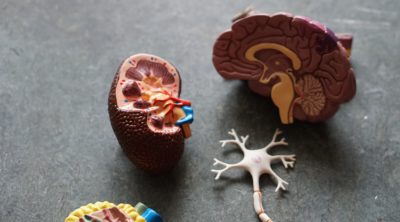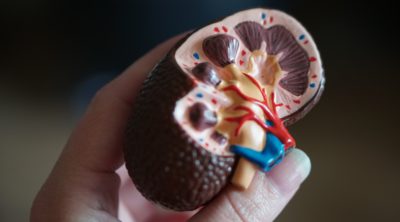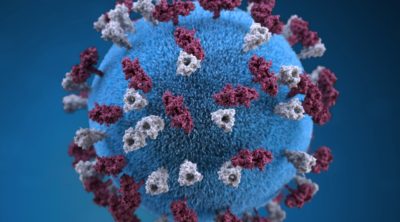
Enzymes in the body play a very important role in the chemical processes taking place within the cells. This article will introduce you with the various types, functions and importance of enzymes in the human body.
Enzymes in the body help carry out various chemical functions like digestion of food, assist in the process of providing cellular energy, support the brain functions, repairing and healing processes within the body, breaking down toxins, detoxification of blood, etc. In short, our bodies will cease to function, if there were no enzymes.
Enzymes are proteins that contain long chain of amino acids. The amino acids are folded in three-dimensional structures. Enzymes are produced in the body by certain organs like the salivary glands, stomach, pancreas, small intestine or come from the food we eat. Enzymes and their function is to basically catalyze reactions with minimum amount of energy used to carry out the specific reactions. There are hundreds of known enzymes that carry out a specific chemical reaction. Functions of enzymes are determined according to the shape of the enzyme. Let us know more about the various types of enzymes present in the body.
Names of Enzymes in the Body
There are six major classes of enzymes found in the body. The following are the names of enzymes and their functions:
- Ligase: This enzyme in the body requires ATP and binds nucleotides together in the nucleic acids. It also binds simple sugars in polysaccarides.
- Lyase: This enzyme in the body breaks the bonds between carbon atoms or carbon nitrogen bond.
- Hydrolase: This enzyme in the body breaks large molecules into simpler molecules by adding a water molecule.
- Transferase: This enzyme in the body cuts a part of one molecule and attaches it to another molecule.
- Isomerase: The atoms in a molecule are rearranged without changing their chemical formula. This helps in getting carbohydrate molecules for certain enzymatic processes.
- Oxido-reductase: This enzyme removes hydrogen or electrons from one molecule and donates it to another molecule. This enzyme is mainly involved in mitochondrial energy production.
- Kinase: This enzyme in the body attaches a phosphate group to a high energy bond. It is a very important enzyme required for ATP production and activation of certain enzymes.
Enzymes in the Body and their Functions
There are three types of enzymes; food enzymes, digestive enzymes and metabolic enzymes. These enzymes are explained in the following paragraphs:
Food Enzymes
Food enzymes are present in all raw foods like animal or plant products. The names of enzymes that are plant-based are protease, lipase, amylase and cellulase. They contain active units that help break down fat, proteins and carbohydrates in the body at the broadest range of pH within the body. They also help in maintaining a proper digestive system and help the body produce more metabolic enzymes. Pepsin, bromelain, etc. are animal based enzymes that help in digestion, as an anti-inflammatory agent. Trypsin helps in braking down arginine or lysine and is active at alkaline pH. The other enzymes that carry out chemical reactions are rennin that readies the milk for the action of pepsin and lipase by braking it down to proteins and fats.
Digestive Enzymes
Digestive enzymes are secreted by the body that helps in digestion of food. The names of enzymes that help in digestion are:
- Amylase: This enzyme helps in breaking down carbohydrates. It is found in saliva, pancreas and intestinal juices.
- Proteases: It helps in digestion of proteins. It is present in the stomach, pancreatic and intestinal juices.
- Lipases: Lipases assist in digestion of fats. It is seen in the stomach, pancreatic juice and food fats.
Amylase I and II are secreted by the salivary glands initially and then by the pancreas. They break the bonds between carbohydrate molecules and produce disaccharides and trisaccharides. Amylase I is activated by chewing and converts starch to maltose. Amylase II is secreted only by the pancreas and carries on with the process that has been initiated with Amylase I.
Pepsin is produced as a proenzyme pepsinogen by the chief cells of the stomach. It gets activated by the hydrogen in the stomach and produces hydrochloric acid at the same time. It breaks the bonds between amino acids in the proteins and produces short chain polypeptides. It also kills any pathogen that enters the body through food.
Pancreas produce trypsin as a proenzyme trypsinogen. It works on polypeptides and proteins producing short chain peptides. It is also acts as an activating enzyme for other pancreatic proteinases. Chymotrypsin produced by the pancreas acts on proteins and polypetides producing short-chain peptides.
Pancreas produce carboxypeptidase as proenzyme procarboxypeptidase. It acts on proteins and polypeptides producing short-chain peptides and amino acids. Another enzyme produced by the pancreas is elastase, that acts on elastin producing short chain of peptides. If there are bile salts present, the pancreas produce lipase that targets triglycetides producing fatty acids and monoglycerides. Vitamin C, glutathione and cysteine play important roles in activation of lipase.
Nuclease produced by pancreas acts on nucleic acids like RNA and DNA to produce nitrogen bases and simple sugars. The mucosal cells of the small intestine secrete enterokinase that reaches the lumen by shedding of epithelial cells. It acts on trypsinogen to produce trypsin. Mucosal cells of small intestines also produce maltase, sucrase and lactase to target sugars like maltose, sucrose and lactose to produce monosaccharides. Peptidase is another enzyme in the body produced by mucosal cells of small intestine that target dipeptides and tripeptides producing amino acids.
Metabolic Enzymes
The metabolic enzymes are found moving all over the body systems and organs. They carry out many chemical reactions within the body cells. Superooxide dismutase, an antioxidant and catalase, the enzyme that breaks down hydrogen peroxide are two most important metabolic enzymes.
These are just a few of the many enzymes in the body and their functions. Enzymes are necessary for cellular functions, completion of digestion, nutrient absorption, combating free radicals and supporting liver detoxification. There are many enzymes that are not produced by our body and need to be supplemented through external sources. Thus, it is essential to maintain a healthy diet . There are many enzyme supplements available in the market that can help you overcome deficiencies, under medical supervision. Excessive intake of enzymes may lead to headaches, bloating, acne, gas, etc.
There are innumerable functions of enzymes, other than those mentioned in this article. Our blood is prevented from getting clot in certain parts of the body by a fibrinolytic enzyme. There are many such chemical reactions that help in the normal functioning of the body. Thus, enzymes in the body can be called the hidden heroes of a well-functioning body, without whom the body will cease to operate.


